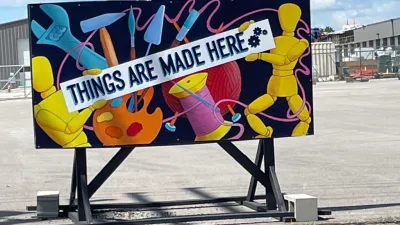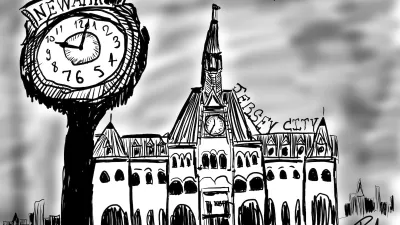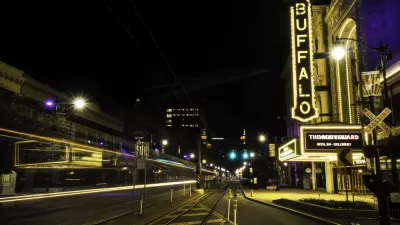Writer Tara Sturm explores the merits of incremental urbanism on revitalization efforts with the help of L.A. architect Alan Pullman, highlighting grassroots, community-driven economic development.
Sturm acknowledges the limitations of the planning field and proposes a fresh perspective: "Though economics and planning are considered sciences, it seems that 'quality of place' is best captured when revitalization is approached as an art. Science is filled with models-many of which we are all too familiar with. And it would seem that many of the models employed in our economic revitalization efforts are just not working. As some groups try to identify a magic bullet that will turn around struggling (read: surviving) communities, some others look to a more organic, connected solution that is better suited to our economic, political, and social culture."
Concrete examples are found through the work of architect Alan Pullman of Studio One Eleven, and used to illustrate the important links between the built environment, creative, meaningful development, and urban revitalization.
Thanks to Tara Sturm
FULL STORY: Incremental Urbanism and the Art of Revitalization

Maui's Vacation Rental Debate Turns Ugly
Verbal attacks, misinformation campaigns and fistfights plague a high-stakes debate to convert thousands of vacation rentals into long-term housing.

Planetizen Federal Action Tracker
A weekly monitor of how Trump’s orders and actions are impacting planners and planning in America.

Chicago’s Ghost Rails
Just beneath the surface of the modern city lie the remnants of its expansive early 20th-century streetcar system.

Bend, Oregon Zoning Reforms Prioritize Small-Scale Housing
The city altered its zoning code to allow multi-family housing and eliminated parking mandates citywide.

Amtrak Cutting Jobs, Funding to High-Speed Rail
The agency plans to cut 10 percent of its workforce and has confirmed it will not fund new high-speed rail projects.

LA Denies Basic Services to Unhoused Residents
The city has repeatedly failed to respond to requests for trash pickup at encampment sites, and eliminated a program that provided mobile showers and toilets.
Urban Design for Planners 1: Software Tools
This six-course series explores essential urban design concepts using open source software and equips planners with the tools they need to participate fully in the urban design process.
Planning for Universal Design
Learn the tools for implementing Universal Design in planning regulations.
planning NEXT
Appalachian Highlands Housing Partners
Mpact (founded as Rail~Volution)
City of Camden Redevelopment Agency
City of Astoria
City of Portland
City of Laramie





























